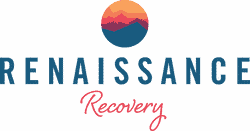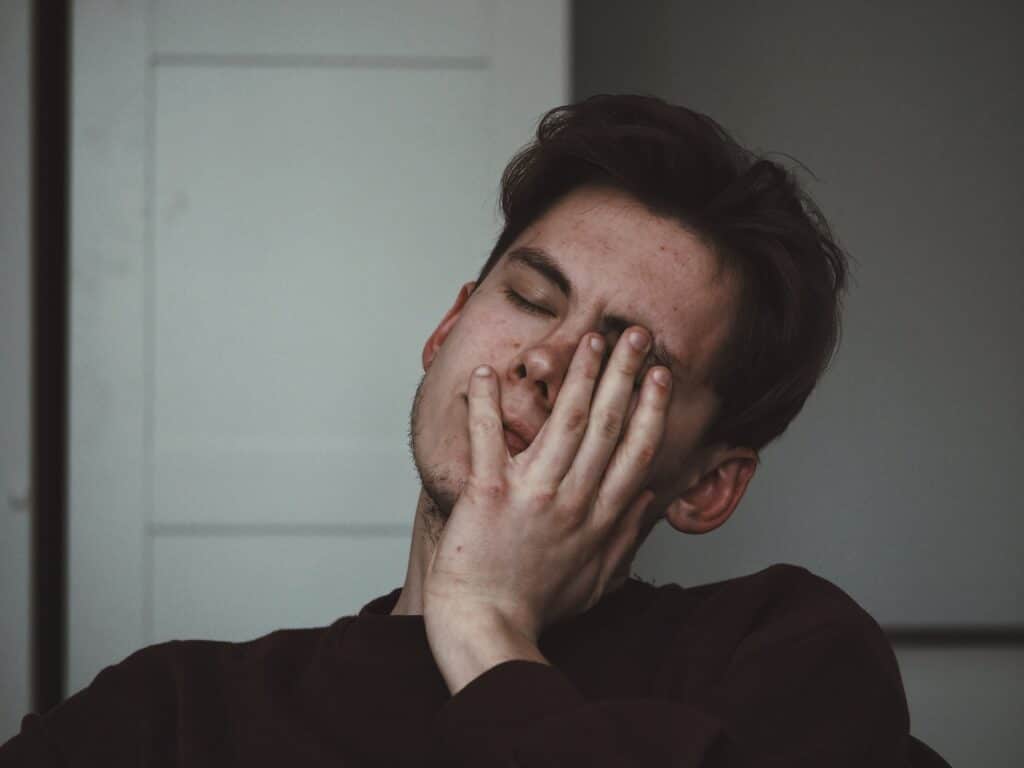Bipolar and Addiction
Overcoming Bipolar Disorder
Bipolar and addiction are both debilitating conditions, but when they co-occur in a dual diagnosis, you’ll need specialized treatment to get back on track.
Bipolar disorder was previously known as manic depression, and it is characterized by dramatic mood swings between emotional extremes.
Although it can be remarkably challenging when bipolar disorder and addiction intersect, it’s possible to fight back against this twin scourge with the right therapy and medication. Call Renaissance Recovery today and learn how you can begin the treatment process.

By: Renaissance Recovery
Clinically Reviewed by: Diana Vo, LMFT
Last Updated:
04/19/2024
Bipolar and Substance Abuse
There is a robust body of research exploring the interrelationship between bipolar disorder and addiction.
The most significant of these studies was performed as part of NESARC (National Epidemiologic Survey on Alcohol and Related Conditions). The study explored the prevalence of co-occurring substance use disorders in over 43,000 respondents in the United States with bipolar I and bipolar II disorders – more on this distinction below.
In the above study, 58% of respondents experienced bipolar and alcohol addiction, while 38% experienced bipolar and drug addiction.
It is still unclear why bipolar disorder increases the likelihood of alcohol abuse and substance abuse. Indeed, both drugs and alcohol typically inflame the symptoms of bipolar disorder.
Beyond this, some people with no prior mental health issues can develop bipolar as a direct result of substance abuse.
Before we look at how bipolar disorder is treated when co-occurring with addiction, we’ll give you a glimpse at what bipolar disorder means in plain English.
Bipolar disorder is chiefly characterized by extreme mood swings. Episodes sometimes last for days and sometimes linger for weeks on end. These episodes can occur a few times a week or on more isolated occasions.
Table of Contents

In addition to these pronounced mood swings, bipolar disorder also brings about significant changes to both energy levels and focus.
Bipolar disorder can be caused both by imbalanced brain chemistry and by genetics. Traumatic environments increase the risk of developing bipolar disorder.
The distressing and wide-ranging nature of symptoms means that up to 6 in 10 of those with bipolar will self-medicate symptoms with alcohol or drugs.
Those with bipolar disorder are prone to 4 distinct varieties of episodes:
- Major depressive
- Manic
- Hypomanic
- Mixed

Dual Diagnosis: Bipolar and Addiction
As well as differing from person to person, the symptoms of bipolar can also strongly resemble the markers of addiction and drug use. If you witness someone undergoing a manic episode, for instance, they will often look and act similarly to someone abusing cocaine. Both experiences involve elevated energy levels and mood. If you see someone undergoing a major depressive episode, by contrast, this can mirror the symptoms of someone going through drug detox and withdrawal.
When someone with bipolar disorder has a co-occurring addiction to drink or drugs, this is known as a dual diagnosis or co-occurring disorder.
With symptoms of each condition overlapping, it’s vital to consult an experienced specialist to give you an accurate diagnosis. From here, you can look at unpacking both of these conditions head-on and simultaneously, but how is dual diagnosis treated?
Drug Addiction
The most effective dual diagnosis treatment centers will help you to address drug addiction and bipolar disorder simultaneously. Broadly similar therapies are applied to both conditions. You can seek either inpatient or outpatient treatment as appropriate methods of care.
What can you expect from bipolar and drug abuse treatment, then?
MAT (medication-assisted treatment) is delivered in combination with counseling – both individual and group – as well as psychotherapies like CBT (cognitive behavioral therapy) and DBT (dialectical behavioral therapy).
CBT is especially effective for treating dual diagnosis as the techniques of cognitive behavioral therapy can be applied to both addiction and bipolar disorder with proven success.
Through psychotherapy sessions, you’ll explore the thoughts and feelings leading to depressive and manic episodes. You will discover that your thoughts and feelings do not necessarily need to trigger automatic behaviors, and you’ll also formulate healthier coping mechanisms in place of substance abuse.

Bipolar and Addiction Treatment Services
MAT (medication-assisted treatment) can help those with co-occurring bipolar disorder and addiction, helping to soothe the intensity of cravings, while also streamlining withdrawal symptoms. The medications prescribed are FDA-approved and depend on the substance of abuse. These medications are safe and non-addictive.
How about bipolar medication, though?
Well, MAT is a vital component of treatment for most people with bipolar disorder, with medications helping to restore some equilibrium to emotional turmoil. These medications include:
- Lithium
- Antipsychotics
- Anticonvulsants
- Benzodiazepines
Benzodiazepines or benzos should only be prescribed short-term and used as directed. Benzos have a strong potential for abuse and addiction, although they can effectively counter both withdrawal symptoms and manic episodes.
Major Depressive
Major depressive episodes leave you feeling depressed and detached from or uninterested in general daily activities.
Your depressed mood needs to last for at least a fortnight to qualify as a clinical major depressive episode.
Manic
At the other end of the emotional spectrum, manic episodes can lead you to become either excessively friendly or outright hostile.
Manic episodes usually last for a week, sometimes more. These episodes often lead to hospitalization.
Hypomanic
The difference between manic episodes and hypomanic episodes is subtle and nuanced.
Hypomanic episodes are less severe and briefer, lasting at least 4 days, but seldom any longer.
Mixed
If you experience mixed episodes because of bipolar disorder, expect episodes characterized by traits of major depressive, manic, and hypomanic episodes.
According to DSM-5 (the current edition of the Diagnostic and Statistical Manual of Mental Disorders), there are two distinct types of bipolar disorder:
- Bipolar I: At least one manic episode or mixed episode, followed by either hypomanic episodes or major depressive episodes.
- Bipolar II: At least one major depressive episode, followed by a hypomanic episode.
Bipolar I is the most severe type of this disorder.
Regardless of the category, symptoms of bipolar vary radically from person to person. For those with co-occurring addictions to drink or drugs, bipolar symptoms are often even more intense. As a result, many people with bipolar reach for substances to self-medicate symptoms that appear otherwise unmanageable.

Alcohol Addiction
Bipolar disorder and alcohol addiction frequently co-occur. The relationship between alcohol use disorder – the formal descriptor for alcoholism – and bipolar is not fully understood. Nevertheless, the following factors can all play a part in co-occurring disorders:
- Genetics: Some genetic traits are believed to impact brain chemistry linked to bipolar. The same genetic traits might also influence how the brain responds to alcohol and other substances, too. More research is needed in this area.
- Anxiety and depression: Many people with mood disorders like anxiety and depression self-medicate their symptoms with alcohol. Not only will this do nothing to address the underlying issue, but both problems will be inflamed over time.
- Mania: Manic episodes of bipolar are characterized by hyperactivity and an intensely elated mood. This commonly leads to lowered inhibitions and impaired judgment, both of which can cause an uptick in alcohol consumption.
When bipolar and alcohol addiction co-occurs, it is advisable to seek specialized dual diagnosis treatment from mental health professionals experienced in treating both disorders.
When bipolar and alcohol use disorder presents simultaneously, you are at increased risk of:
- Depression
- Mood swings
- Violence
- Suicide
Also, each condition can worsen the symptoms of the other condition.

Bipolar and Addiction: Orange County
If you engage with bipolar and addiction treatment services in OC, you’ll have access to some of the most experienced addiction and mental health professionals in the United States. Whether you need residential treatment or you can manage to unpack this dual diagnosis via outpatient programming, Orange County provides you with access to all the help you need.
For anyone living out of state, Orange County makes a superb choice for inpatient rehab. With plenty of sunshine year-round and an abundance of outdoor activity at your disposal, lift your mood while unchaining yourself from an incapacitating dual diagnosis at an Orange County Rehab.
Renaissance Recovery Dual Diagnosis Treatment
If you are grappling with a dual diagnosis of bipolar and addiction, we’re here to help you fight back at our California recovery center.
Our highly structured outpatient treatment programs include both IOPs (intensive outpatient programs) and PHPs (partial hospitalization programs), giving you the support and structure of residential rehab but without the costs of the restrictions.
To find out more about our evidence-based dual diagnosis treatment programs, reach out to admissions today at 866.330.9449.
Rehabilitation can put an end to addiction
Call and ask the facility directly or call your own provider to determine if your insurance covers the treatment.

